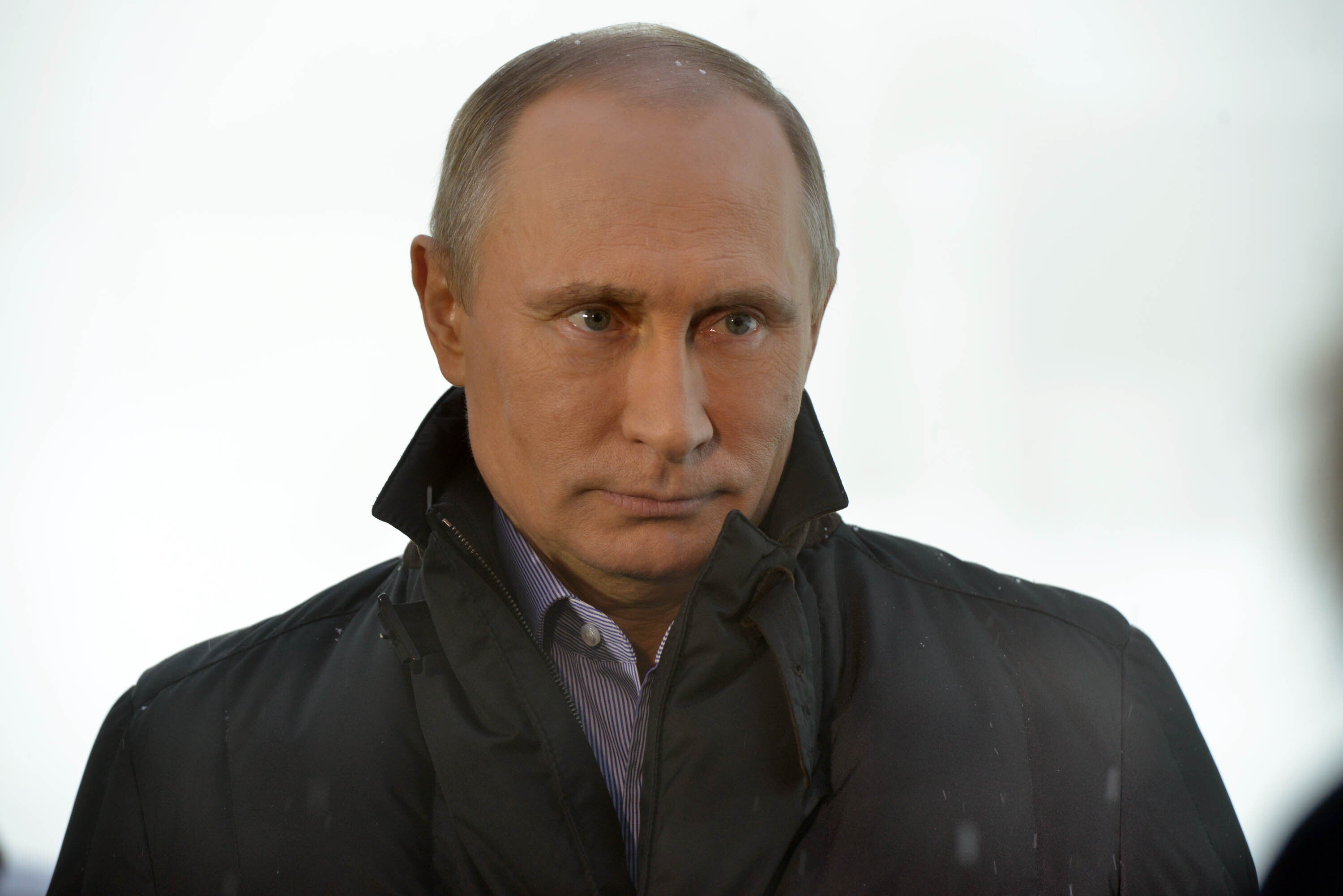The west must find a way to stop a Russian invasion of Ukraine
Editorial: Expectations from the talks in Geneva between Russia and the US have been played down by both sides – however, that is not to say that an outline of an agreement cannot be envisaged

Far from being a riddle, wrapped in a mystery, inside an enigma, Russia’s intentions are rather obvious nowadays. It wants the west, specifically Nato, out of eastern Europe and out of the now independent states that once made up the western flank of the Soviet empire. The Russian foreign minister, Sergey Lavrov, has openly said as much. It also wants guarantees that neither Georgia nor Ukraine will be permitted to join Nato, and that American nuclear weapons will not be deployed in eastern Europe.
Expectations surrounding the talks in Geneva between Mr Lavrov and his American counterpart, Antony Blinken, have been played down by both sides, as well they might: a series of demands made by Russia that cannot be met by the United States and its allies would seem to be a recipe for failure. Indeed, it is as if the Russians actually want the talks to collapse, because that would serve them well. Such an outcome would make the west appear intransigent and set on encircling Russia – a potent image ready to be presented to the Russian people, and exploited in full, by the Putin government.
The obvious danger then is that the Russians would take the supposed rebuff as justification for taking action against Ukraine. A full-scale invasion, something that seemed unthinkable a decade ago, is starting to feel inevitable. They did, after all, annex Crimea seven years ago, and Russian proxies occupy the eastern section of Ukraine – all moves unchallenged by the west beyond some economic sanctions.
It may be that Moscow will spend some time harassing the Ukraine government, destabilising its politics and organising false-flag incidents as further preparation for military or paramilitary activity. Russia is telling the west, in barely coded form, that if it wants what’s left of Ukraine to remain an independent state, then it should make historic concessions to Russian interests. It is intimidation, with Ukraine held hostage.
Vladmir Putin, in other words, wants a return to the old “sphere of influence” established by Russia through occupation after the Second World War. In Belarus, Kazakhstan, Crimea and eastern Ukraine, the Kremlin has also made no secret of its willingness to use its own armed forces to defend what it perceives as its own interests. It’s about territorial expansion, and the economic and political dividend that will yield to Mr Putin and his people.
Mr Putin is an opportunist, and one reason he feels the moment is right to probe western resolve is that he senses that western leaders are weak and divided. President Biden virtually gave Russia a green light for an invasion of Ukraine when he talked carelessly about the minimal consequences that would follow a “small incursion” into the country.
Moreover, Russia senses that the Biden administration is distracted by Covid and China, and that America’s allies are equally preoccupied. Post-Brexit Britain has a prime minister about to be toppled by his own party; France’s Emmanuel Macron has a presidential election to get past; and Germany, with a new chancellor taking over in the shadow of Angela Merkel, is heavily dependent on Russian gas, and has already signalled it will not fight for Ukraine, even as Britain and France offer weaponry.
The lessons of history invariably teach us that appeasement is no way to deal with a bully such as Mr Putin. However, that is not to say that an outline of an agreement in Geneva cannot be envisaged. The Minsk agreement, which desperately tries to reconcile Ukrainian sovereignty with Russian ambitions, is at least a starting point. Further, Nato could quite freely offer Russia, and her client states, a security guarantee of non-aggression, because no Nato state has designs on the territorial integrity of the Russian federation.
There could be voluntary limits on the type and scale of the US and other military deployments in the more recent Nato members, such as the Baltic republics, Romania and Bulgaria, to which Russia objects. They need not be demilitarised – they are sovereign states after all – and they would retain the full protection of the alliance, so that an attack on them would be treated as an attack on all.
To keep up to speed with all the latest opinions and comment sign up to our free weekly Voices newsletter by clicking here
But the military stance of maintaining Nato assets stationed in these states could be explicitly geared towards defence. There is no reason for Russia to invade Ukraine and install a puppet regime there, and Nato has no need to supply the Russians with a handy casus belli.
So it is to be hoped. If Russian participation in the Geneva talks is purely performative, though, even such generous gestures of peaceful intent by the west will be dismissed by Mr Putin, an autocrat ruling a country with few things going for it except its vast conventional military and its nuclear arsenal. All the west can threaten is economic sanctions – which will hurt Russia, but not enough to deter it from seizing the prize of Ukraine. If sanctions worked, the Russian flag would not now be flying over Crimea.
However, as Liz Truss, the foreign secretary, wisely points out, Russia will face a fight in Ukraine, and – like the ill-starred and tragic war it fought after the invasion of Afghanistan in 1979 – its adventure could turn into a bloody quagmire. For the moment, though, even that prospect seems to provide little deterrent to Russian expansionism.






Join our commenting forum
Join thought-provoking conversations, follow other Independent readers and see their replies
Comments